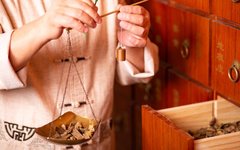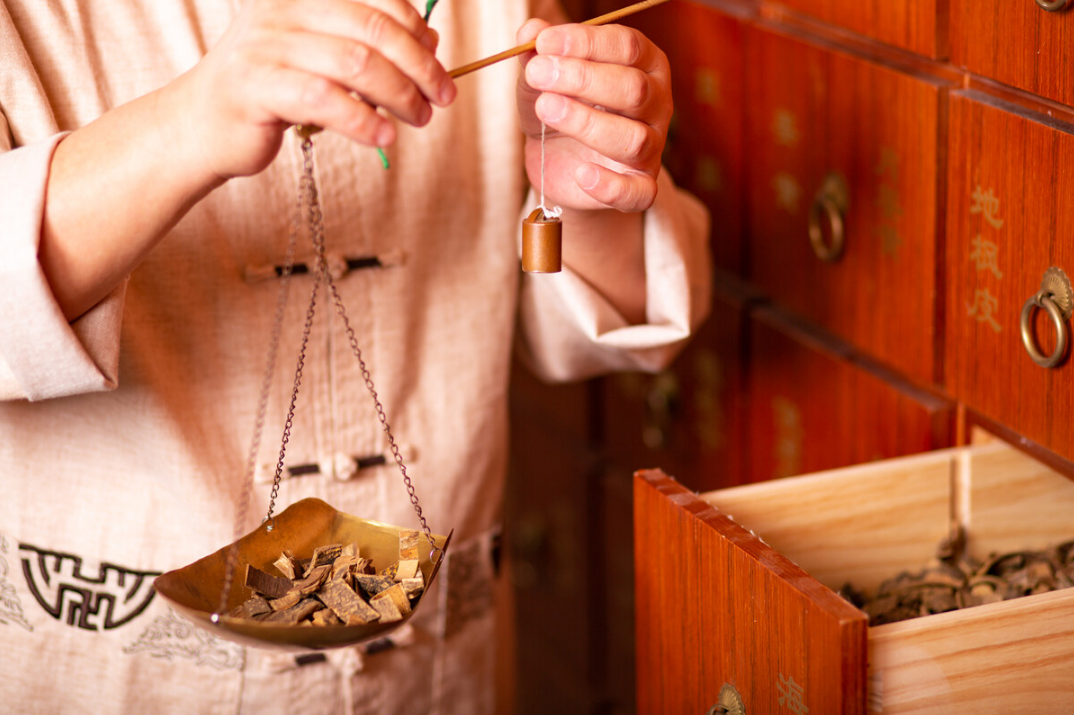


“Shu huo yi zhang pi, ren huo yi kou qi.”
Some say that a person lives on a breath of qi, standing firm and unyielding; this breath is our essence, qi, and spirit. The “Nanjing Jizhu” states: “Qi is the foundation of a person.”
This means that qi is the basis of life. People are born from the gathering of qi and perish from its dispersal. Supported by qi, one lives vibrantly; guided by qi, one can achieve great things. However, when a person’s breath is weak, their qi is nearly exhausted.
So, what exactly is this important “qi”? What understanding does Traditional Chinese Medicine (TCM) have about it?


 What is the “qi” in TCM?
What is the “qi” in TCM?

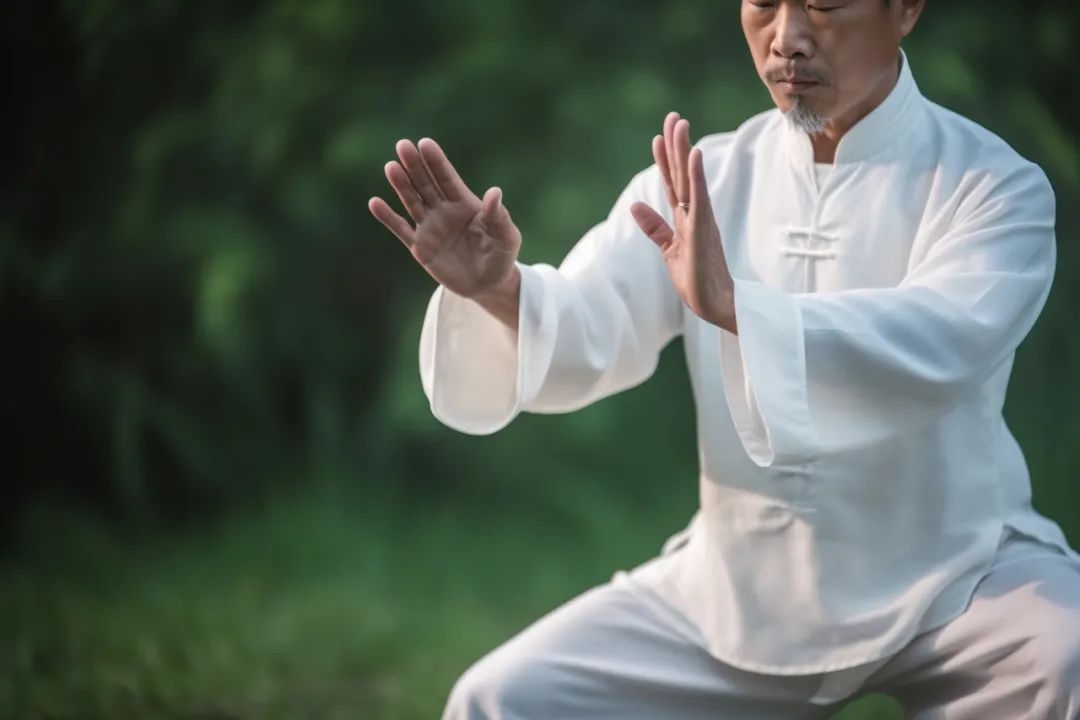
The “Suwen: Baoming Quansheng Lun” states: “Humans are born from the qi of heaven and earth,” and “the union of heaven and earth’s qi is called a person.”
Qi is the most fundamental substance that constitutes all things in heaven and earth, and humans originate from nature, which is a product of the “qi of heaven and earth.” The human body is fundamentally composed of “qi” as its basic material foundation.
The “Suwen: Liu Jie Zang Xiang Lun” states: “Heaven nourishes humans with five qi, and earth nourishes humans with five flavors.”
Qi is the basic substance that maintains the life activities of the human body. Humans exist in the natural world, and their growth, development, and various life activities require the intake of nutrients from the “qi of heaven and earth” and the exchange of materials and energy with the surrounding environment to sustain life activities.
Comparing the human body to a society, the five organs are like cities, and the meridians are the various connecting roads. The vehicles and materials running on these roads represent qi. In other words, qi is the energy source of the entire system.

 What are the functions of qi?
What are the functions of qi?

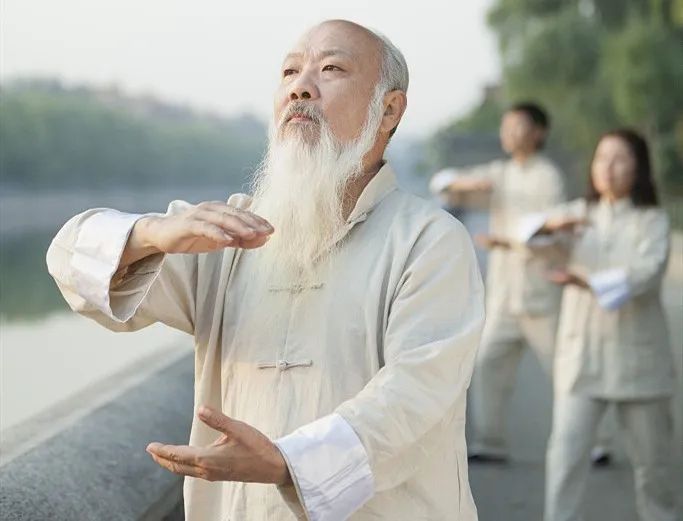
In summary, qi has the functions of transformation, promotion, nourishing blood, warming the entire body, resisting external pathogens, and promoting the activities of the organs and tissues.
1The Promoting Function of Qi
Qi has the ability to stimulate and promote, with strong vitality that can inspire and enhance the growth and development of the human body, as well as the physiological activities of organs and meridians; it can promote the generation, circulation, and excretion of blood and body fluids.
2The Warming Function of Qi
The “Nanjing: Ershier Nan” states: “Qi is the master of warmth,” meaning that qi is the source of heat in the human body. The body temperature, normal physiological activities of the organs and meridians, and the circulation of blood and body fluids all rely on the warming function of qi. Therefore, it is said that “blood moves when warmed, but congeals when cold.”
3The Defensive Function of Qi
Qi has the function of protecting the skin, resisting pathogenic factors, and maintaining the health of the body, mainly reflected in two aspects: one is to resist the invasion of external pathogens; the other is to expel pathogens from the body.
The “Suwen: Ping Re Bing Lun” states: “When the righteous qi is preserved within, the evil cannot invade”; “Wherever evil gathers, its qi must be deficient.”
This means that when the defensive function of qi is normal, it is difficult for pathogenic factors to invade; even if they do invade, it is not easy to cause illness; and even if illness occurs, it is easier to cure.
4The Controlling Function of Qi
Qi has the function of controlling and regulating substances such as essence, blood, and body fluids, preventing their unnecessary loss. It can control blood to prevent it from overflowing outside the vessels, ensuring normal circulation within the vessels; it can also control the secretion and excretion of sweat, urine, saliva, gastric juice, and intestinal fluid to prevent the loss of body fluids.

 Three Dietary Therapies to Supplement Your Vital Qi
Three Dietary Therapies to Supplement Your Vital Qi

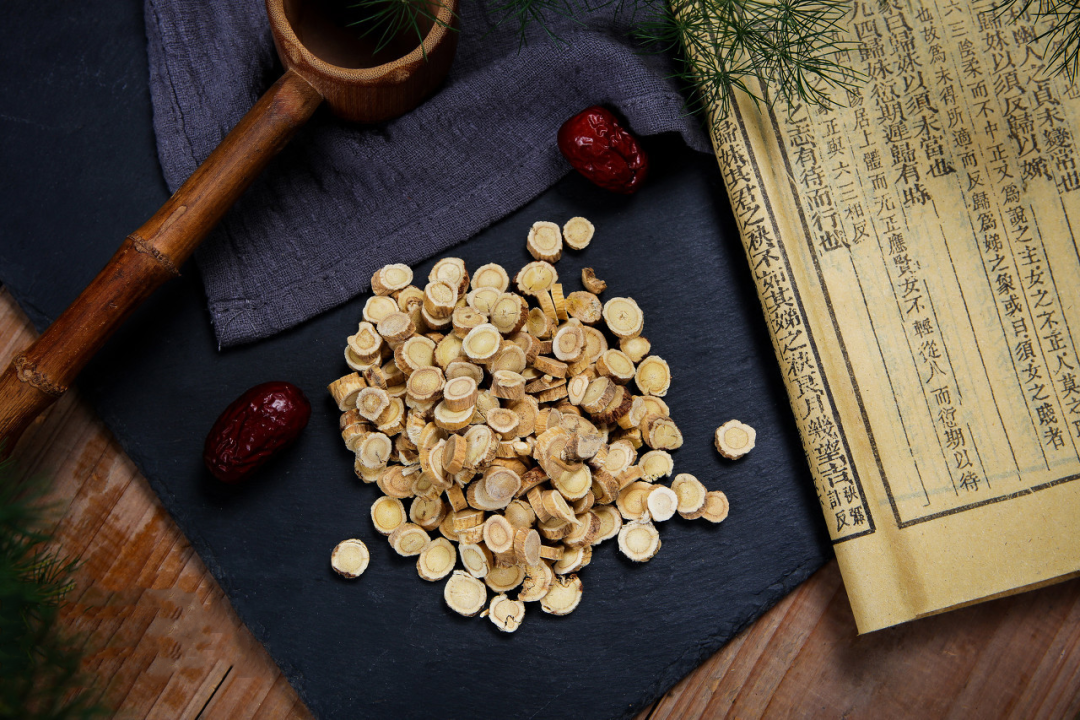
1Qi Deficiency: Insufficient Vital Qi
Qi deficiency refers to a series of pathological changes and symptoms caused by insufficient vital qi, commonly manifested as physical weakness, pale complexion, shortness of breath, fatigue in the limbs, dizziness, sweating upon exertion, low voice, etc.
At this time, we need to replenish the insufficient qi, and in traditional Chinese medicine, there is a herb known as the king of qi tonics—Huang Qi (Astragalus).
As a leading tonic, Huang Qi is considered to have a slightly warm nature, sweet flavor, and is associated with the Lung, Spleen, Liver, and Kidney meridians.
The “Chinese Pharmacopoeia” records: “Huang Qi has a sweet taste and slightly warm nature, with functions of tonifying qi, securing the exterior, expelling toxins, generating fluids, nourishing blood, and promoting diuresis and tissue regeneration.”
Why not use the more effective Ren Shen (Ginseng) for tonifying qi?
Ren Shen has a stronger qi tonifying effect than Huang Qi, but it primarily tonifies the vital qi, with rapid effects that can easily lead to dryness and heat, and is often used in cases of severe deficiency or acute conditions.
Huang Qi, on the other hand, tonifies all five organs and focuses on tonifying Lung and Spleen qi. Its properties are mild and not harsh, allowing it to gently replenish the “vital qi,” effectively improving symptoms such as fatigue, weakness, and dizziness associated with insufficient vital qi.
Additionally, Huang Qi excels at tonifying Lung qi, which distributes defensive qi throughout the body. The Lung governs the skin and hair, which serve as the first line of defense against external pathogens. If Lung qi is weak, the defensive qi cannot cover the body surface, making it easy for external pathogens to invade.
Therefore, the premise of tonifying defensive qi is to tonify Lung qi, which can effectively improve discomfort caused by qi deficiency, such as susceptibility to colds.
Dietary Therapy: Huang Qi + Shan Yao (Chinese Yam).
In cases of qi deficiency, Huang Qi can be paired with Shan Yao, which has the effects of strengthening the Spleen, tonifying the Lung, benefiting the Stomach, tonifying the Kidney, solidifying essence, strengthening bones, and promoting longevity. The combination of Huang Qi and Shan Yao is complementary, as Huang Qi can tonify qi and raise yang, while Shan Yao can tonify the Spleen, nourish the Lung, and solidify Kidney essence, thus enhancing the overall function of the organs.
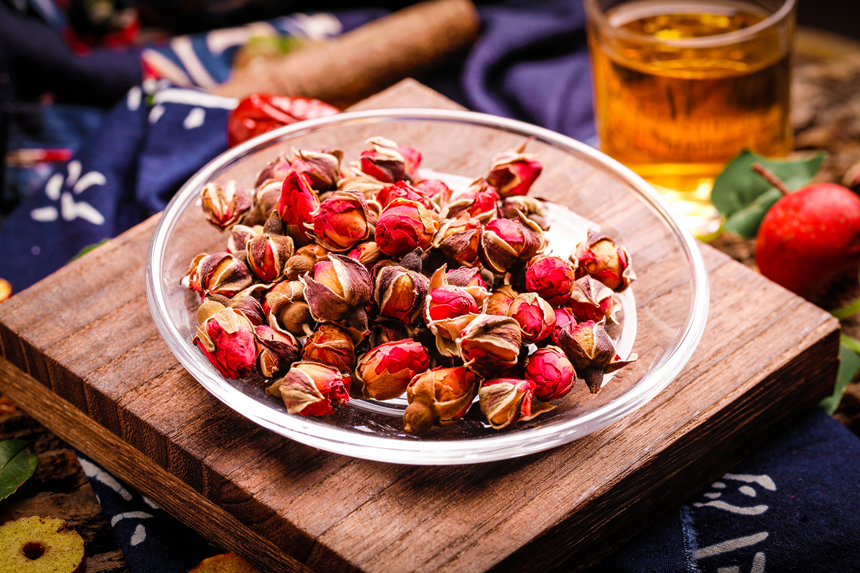
2Qi Stagnation: Obstruction of Qi in the Organs
Qi stagnation (also known as qi depression) refers to the obstruction of qi in the organs and meridians, leading to various symptoms depending on the site of stagnation.
If qi stagnates in the Spleen, it leads to reduced appetite and abdominal distension; if it stagnates in the Liver, it causes Liver qi rebellion, resulting in rib pain and irritability; if it stagnates in the Lung, it leads to unclear Lung qi, resulting in phlegm and cough. Qi stagnation in the meridians can cause pain or movement disorders in the corresponding areas.
There are many causes of qi stagnation, including emotional and psychological factors, as well as modern lifestyle factors such as high work intensity, frequent late nights, and fatigue, leading to qi and blood deficiency. TCM also recognizes a type of deficiency-related qi stagnation, which occurs due to qi deficiency that weakens the ability to promote qi and blood flow, resulting in blockage.
If one simply promotes qi and soothes the Liver, it may further weaken the body’s qi. Therefore, it is necessary to supplement the promoting force while also guiding the qi flow.
Dietary Therapy: Huang Qi + Mei Gui Hua (Rose).
In this case, we can use Huang Qi paired with ingredients that soothe the Liver and relieve depression, with the most common combination being Huang Qi and Mei Gui Hua. Huang Qi tonifies qi, while Mei Gui Hua soothes the Liver and relieves depression, thus promoting both Liver qi and qi flow.
On one hand, this combination can be used to treat symptoms caused by qi deficiency and qi depression, such as fatigue, weakness, low energy, dizziness, palpitations, spontaneous sweating, insomnia, forgetfulness, numbness in the limbs, reduced menstrual flow, delayed menstruation, or even amenorrhea.
On the other hand, it can also be used to regulate symptoms caused by Liver qi stagnation and blood stasis, such as chest tightness, rib distension, frequent sighing, depression, irritability, or insomnia.

3Qi Reversal: Abnormal Ascending and Descending Qi Flow
Qi reversal refers to abnormal ascending and descending qi flow, where qi should descend but does not, leading to pathological changes of qi flowing upwards or horizontally. Clinically, it is most commonly seen as Lung qi reversal or Stomach qi reversal, with Lung qi reversal causing cough and shortness of breath, and Stomach qi reversal causing nausea, vomiting, belching, and hiccups.
Qi reversal occurs due to the failure of qi to descend, but can Huang Qi, which tonifies and raises qi, exacerbate the symptoms of qi reversal?
However, ancient physicians have many prescriptions using Huang Qi to treat qi reversal, including Huang Qi Jian Zhong Tang and Sheng Yang Yi Wei Tang, which are representative formulas. The key to application is to consider the specific pathological mechanism of the individual. Huang Qi is particularly suitable for deficiency-related qi reversal, especially in cases of prolonged illness that easily damage the Spleen and Stomach, leading to qi and blood deficiency. The middle jiao is the hub for the ascending and descending of qi; if the qi flow is obstructed, it will disrupt the normal ascending and descending functions.
Huang Qi tonifies the deficiency of the Spleen and Stomach, ensuring sufficient vital qi, allowing the five organs to function harmoniously without the adverse effects of qi reversal. Therefore, it is particularly suitable for deficiency-related qi reversal caused by qi flow obstruction.
Dietary Therapy: Huang Qi + Sha Ren (Amomum).
In this case, we can pair Huang Qi with ingredients that harmonize the Stomach and reverse qi flow, with the most common combination being Huang Qi and Sha Ren. Sha Ren has a spicy and warm nature, associated with the Spleen, Stomach, and Kidney meridians, and can transform dampness and stimulate appetite (source: “Traditional Chinese Medicine Pharmacopoeia”). The combination of Huang Qi and Sha Ren can be used to treat damp obstruction and qi stagnation, improving symptoms such as abdominal distension and belching.
Sha Ren can also warm the Spleen and stop diarrhea, making it useful for regulating vomiting and cold-induced vomiting due to Spleen and Stomach deficiency. When used together with Huang Qi, its effects can be enhanced.
Huang Qi also has the function of tonifying qi and raising yang. Drinking Huang Qi and Sha Ren as a tea or soup can help regulate Spleen qi deficiency, Spleen deficiency with qi sinking, and chronic diarrhea.
In summary, Huang Qi is a commonly used and versatile herb that can be paired with various ingredients, used as tea, soup, or in herbal formulas. It is known as the “king of tonics” in TCM and is praised by Li Shizhen as the “leader of tonics.”
The above is for reference only; please consult a physician for guidance in your dietary adjustments.
Reviewed by: Pharmacist Lu
Edited by: San Qi Xiao Mei
Return to the main pageReply with any keywords
to view the corresponding articles
| Back Diagnosis | Face Diagnosis | Tongue Diagnosis | Sweat Diagnosis | Eye Diagnosis | Differentiation |
| Gua Sha | Cupping | Moxibustion | Acupressure | Foot Therapy | Meditation |
| Patting | Stretching | Veins | Nails | Acne | Stones |
| Liver Cirrhosis | Home Feng Shui | Sanfu Paste | Vinegar-Pickled Eggs |
| Tips | Tests | Winter Illness Treated in Summer | Self-Healing |

